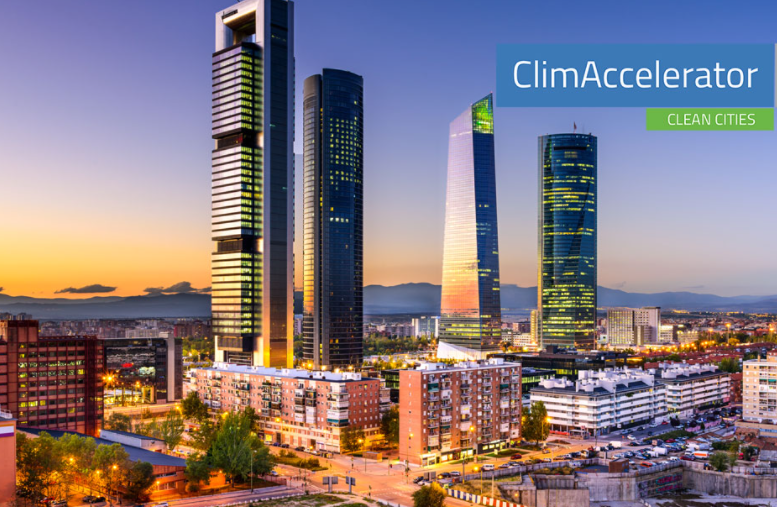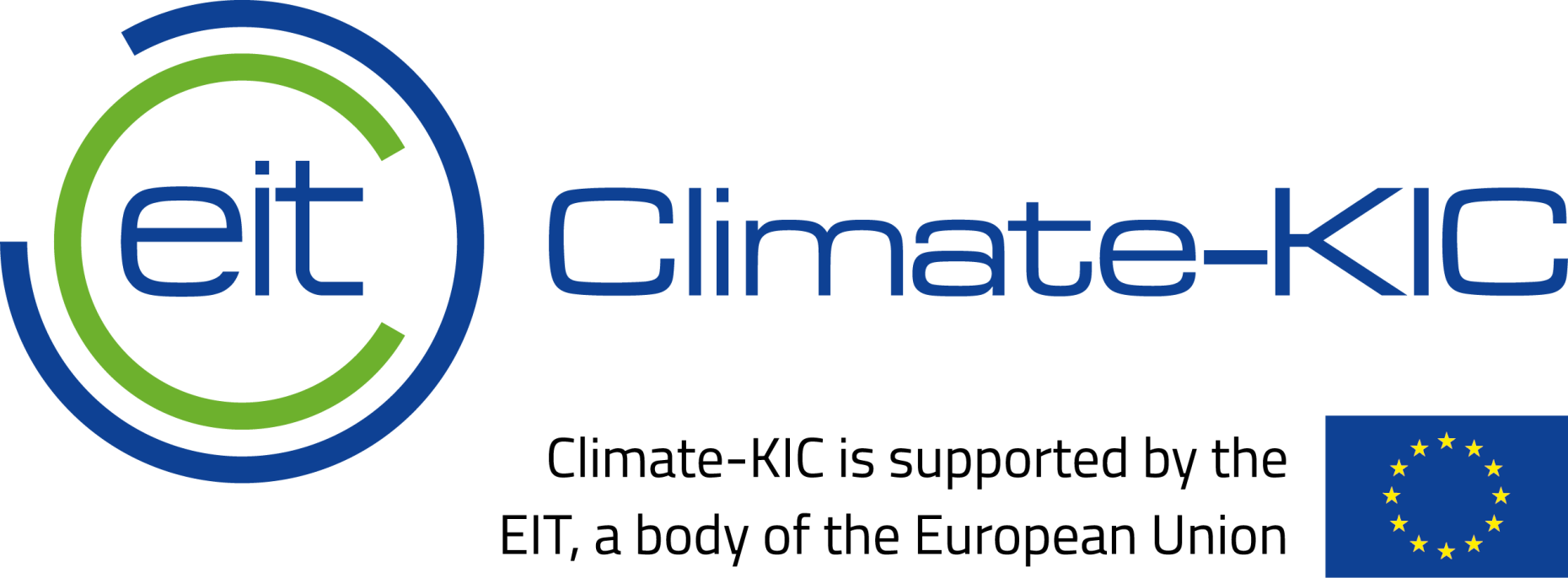15 selected start-ups will connect with public-private entities in Stage 2 of Clean Cities ClimAccelerator
15 start-ups make it through to Stage 2 of Clean Cities ClimAccelerator
Publicado el viernes, 15 de octubre de 2021 a las 10:04
In this second stage of the acceleration process, which comes after the 'Validation' phase, the chosen start-ups will participate in a new 'Collaboration' process with a duration of four months and funding of up to 20,000 euros. Selected largely for their ability to be implemented in the short term and their alignment with the current strategy of the institutions that make up the accelerator's ecosystem, the aim of this new stage is to enable them to present their validated business models to real clients.
Thus, during the new period, the entrepreneurs will develop their proof of concept by focusing on solving real problems presented by one of the entities that pose the challenges. To do so, they interact with the participating entities through the 'Deep Demonstration', a new model of innovation and experimentation designed by EIT Climate-KIC, a programme in which Madrid participates among 14 other European cities and which is focused, in this case, on designing innovative solutions for the climate neutrality of the city, which they can later implement in the rest of European cities and, in this way, accelerate the process of knowledge on how to change the world in a context of urgency, complexity, uncertainty, inequality and diversity. And they will do so thanks to the support of experts, mentors, workshops and all kinds of activities of great added value.
"In this second stage of the accelerator, we offer our start-ups the opportunity to integrate into a complex ecosystem such as the city. Through proofs of concept developed in collaboration with partners and challenge owners, the 15 selected start-ups will be able to promote their solutions, evolve them and in the near future implement them in the market with the help of these strategic partners", says Elisa Navarro, Senior Advisor at the Universidad Politécnica de Madrid and coordinator of the Clean Cities ClimAccelerator programme.
The importance of public-private collaboration in sustainability issues.
Public-private collaboration and the involvement of all the actors in the system is fundamental to achieve systemic changes that allow cleaner and more sustainable cities to be achieved, as well as synergies for the resolution of social, economic and environmental problems.
In this sense, Clean Cities ClimAccelerator allows participating public and private institutions to connect directly with start-ups that can provide solutions to their real problems or that are in line with their current strategy in terms of sustainability. In this way, the start-ups can provide them with innovative solutions that can be implemented quickly and adapted to their climate challenges. For Elisa Navarro, "this approach is aligned with the needs of cities for a climate-neutral future, in which systemic changes can only happen by connecting and collaborating through public-private consortia in which institutions, companies, investors and start-ups work together in favour of innovation".
Co-creation to respond to complex challenges.
During Stage 1, different collaborations and synergies have already emerged between the participating start-ups and the programme partners, including the City Councils of Madrid and Vienna as main challenge owners; Ferrovial, Madrid Nuevo Norte and ZubiLabs & La Pinada in the Spanish ecosystem, and Vienna Business Agency, Wien Energie, Wiener Linien, Wiener Lokalbahnen, Wiener Wohnen and Austria Wirtschafts Service among others, in the Austrian ecosystem. In addition to EnBW as a recent partner in the German environment.
It is a new way of approaching the problems of cities that seems to be the definitive one, since through an innovative co-creation process, the participating entrepreneurs are providing answers to complex city challenges such as mobility, renewable energies, complex data and information systems, green spaces or building refurbishment, which are the five major challenges that define the accelerator.
List of start-ups moving on to Stage 2
A piece of lemon cake: a start-up created with the aim of helping cities to kick-start their circular economy and eliminate their carbon footprint. It uses solid waste produced by the fruit juice industry and orange juice pressing machines available at food outlets to create a bio-based insulation material for the building industry, thereby significantly reducing the volume of waste, CO2 emissions and energy consumption in buildings.
PurCity: a Danish company that aims to improve people's quality of life by purifying the air in their cities. To this end, they have designed a multifunctional building panel (GapS) that is installed as an exterior façade of the building, allowing air purification through natural ventilation, and adding additional thermal and acoustic insulation.
Mooevo: innovative solution that allows large loads to be transported effortlessly, in a safe and manoeuvrable way, using electric power. It is a unique and patented system that allows electric mobility for trolleys and wheelchairs, while transporting the person driving it.
Treesense GmbH: developing innovative solutions using sensor technology based on machine learning models, in order to improve the understanding of our trees and thus contribute to a more conscious use of our planet's resources. To achieve this goal, they apply a new way of thinking about IoT: the Internet of Trees.
Lumio: start-up specialising in the installation of solar projects. They study the energy potential in detail in order to personalise each proposal to suit each consumer. In addition to the installation of solar panels, they offer the possibility of accessing an online marketplace where individuals and companies can exchange solar energy.
Hoop Carpool: offers the possibility for commuters to travel together through a platform that connects drivers and passengers, so that they can share their usual car journeys. The focus is on cities where the volume of commuting has led to serious traffic and pollution problems.
Linclab: cloud-connected hardware for real-time monitoring and control of all energy, water and HVAC systems in building management. It has applications in the residential, industrial, commercial and restaurant sectors, among others.
Peafowl Solar: a new generation of IoT devices in the form of a highly transparent solar cell that allows sensors to be integrated directly into the glass, without wires or batteries. In this way, buildings can be retrofitted with intelligent management systems capable of creating a comfortable indoor environment, increasing productivity and saving energy.
Commonsun: construction and management of community solar photovoltaic systems. With a solar structure on the roof of buildings, owners become producers of electricity, which can be purchased directly from them quickly and easily. This is environmentally friendly and cheaper than the individual price of household electricity.
Carbon Laces: building a pioneering results-based climate finance platform that brings together AI and automation in order to come up with concrete actions to reduce environmental impact. Sustainable measures such as solar panels, wind turbines, etc. and other behaviours and investments need to be rigorously measurable.
Eddi Bike: its main objective is to make cities healthier and more liveable through more sustainable mobility. For this reason, EDDI Bike facilitates the use of bicycles by subscribing to their use. In this way, you can change model whenever you need to and forget about the costs that may be generated by their purchase and maintenance.
Velovio: Improving bicycle parking and storage infrastructures, offering an efficient solution to make the best possible use of space both in the city and in companies. This company offers different solutions to the same problem.
Plantika: its main activity focuses on making roofs more sustainable by planting various plant species and caring for them in different modules spread over the entire surface. This solution not only improves the insulation of homes and offices, but also helps to capture CO2 generated by the city itself.
Upfarming: installation and maintenance of rotating vertical farms. They present this option as a solution to the problems of space, overcrowding and health that are centred in cities. With their patented rotation system, they ensure that the different species of vegetables can all grow under the same conditions, making the most of the vertical space.
BAQME: platform for sharing electric cargo bikes, which are adapted to transport whatever the user needs. The use of this platform reduces the carbon footprint, improves air quality and the sustainability of the city. It is presented as an alternative for short distance trips.
Fuente original del contenido:
CLIMATE KIC
https://spain.climate-kic.org/news/15-start-ups-seleccionadas-conectaran-con-entidades-publico-privadas-en-el-stage-2-de-clean-cities-climaccelerator/


